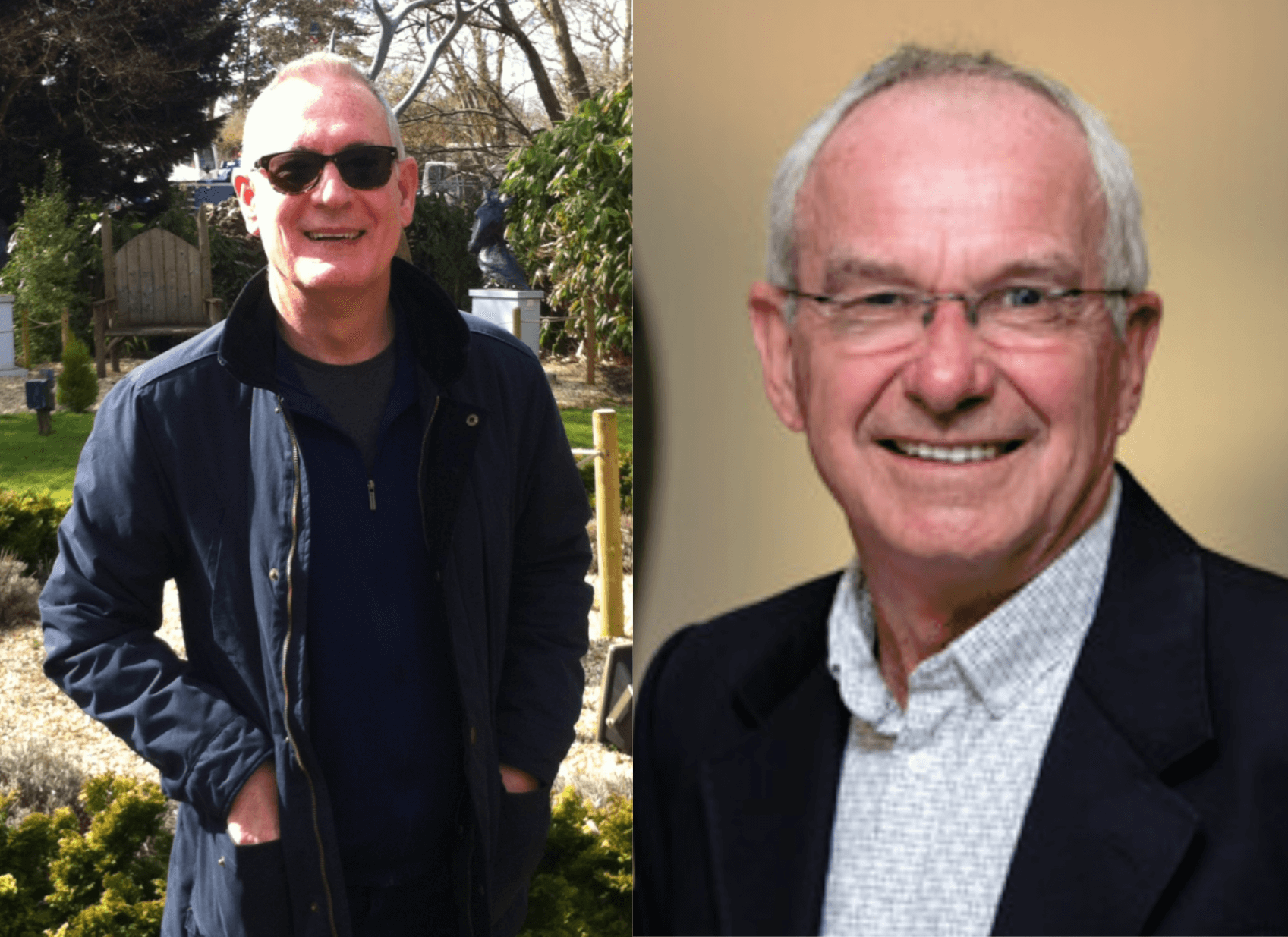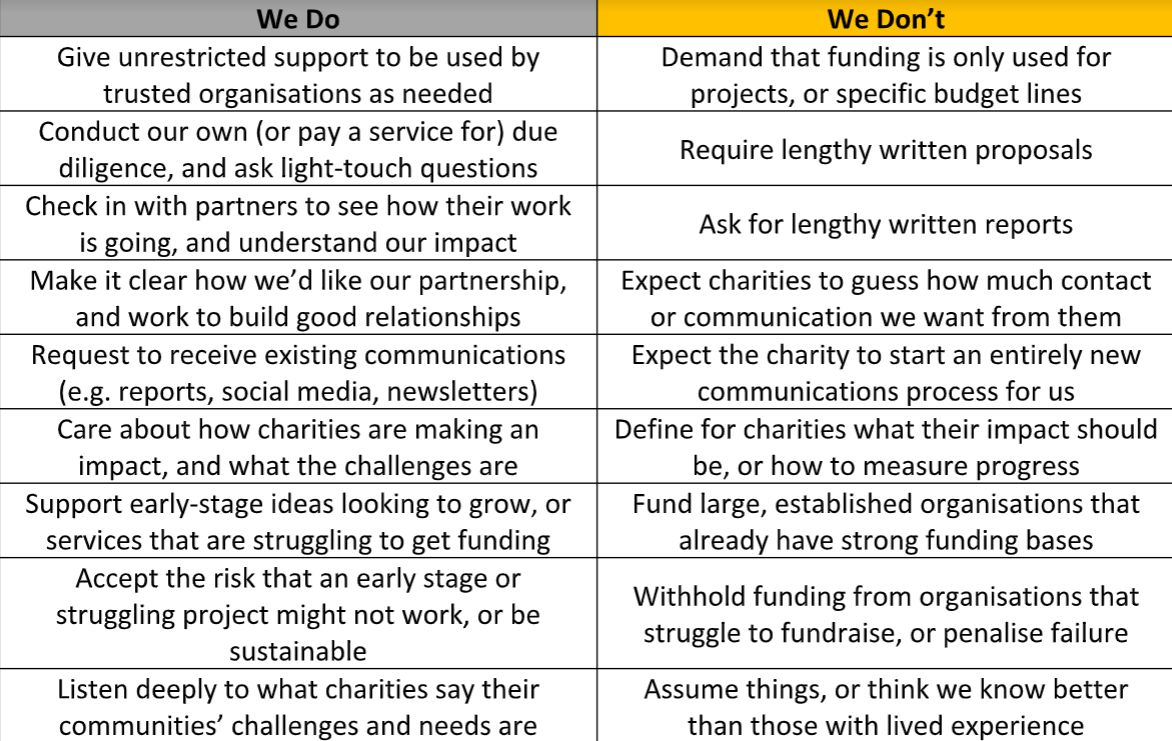Baba-Jallah Epega is a Nigerian-born British-educated entrepreneur and philanthropist.
He established The Richard Coker Foundation in memory of his late cousin who had sickle cell. The non-profit organisation supports research into the disease and projects that help affected people and their families.
Baba-Jallah’s sense of right and wrong and standing up to injustice started young – at aged six in fact when he threw a stone through a teacher’s classroom window and smashed it. It was in protest at her collectively punishing the whole class by making them stand in the Nigerian sun for over an hour.
“I found it so unjust because one kid had done something wrong but no one said anything. So we all had to stand in the sun. And at that time we were very young, and I had a younger cousin, who had sickle cell, and it wasn’t right to stand out there for so long. I was very angry. So when we were sent back to class, I picked up a stone and threw it at her window and it smashed. I didn’t care. She was wrong.”
He may have been standing up for what he thought was right but his rebellion got him expelled and shortly afterwards he was whisked off by his parents to an English boarding school where he was welcomed by freezing winters, cold dormitories, windcheaters, rugby (which he loved) and classical music.
Soulless in the City
When he finished school he completed a degree in economics and Spanish at Queen Mary College at London University. Then it was off to work in the City in banking and investments.
But after just a few years he found it ‘soulless’.
“My colleagues and I, we lived in a bubble and I didn’t feel connected to the world,” he explained.
When he saw his black colleagues having problems getting into London’s top nightclubs and bars, he saw a new opportunity that would get them access into the clubs and earn him a good commission per event.
This in turn led him into establishing a global events company and then onto becoming a serial entrepreneur who has started and then sold several businesses.
“I sold my company and made a chunk. Then sold another company and made another chunk and so on,” he says.
He, his wife and children live in London but he flies back and forth to Nigeria often for business and his charitable work.
“That’s where my heart is,” he explains.
“I’ve enjoyed so much in Britain but sometimes I can’t enjoy it because many of my people are suffering.”
“It’s part of my fibre to help.”
Inspired by faith and family
His desire to help came from his family and his faith.
“I think it came from my parents. And also obviously my schooling, but also my faith. And my grandmother always instilled it in us as well.
On Saturdays she would give bread to the lepers. There were so many stigmas. About 35 or 40 years ago people always thought leprosy was contagious but my grandmother proved that it wasn’t
Baba’s grandmother also used to help people with sickle cell.
It was condition that affected his cousin Richard with whom he was very close.
“Until I was about eight I thought Richard was my brother. We grew up together. Went to school together. He died of leukaemia when we were 33. His condition was complicated by his sickle cell.”
Sickle cell disorder is an inherited condition of the red blood cells which become hard, sticky and sickle shaped. When these hard and pointed red cells go through the small blood tube, they clog blood flow and break apart causing pain, tissue damage and a low blood count, or anaemia.
After Richard died, his mother Julie Coker and Baba-Jallah established The Richard Coker Foundation in 2004.
Supporting families and frontline services
For the first few years they put money into research and development in haematology at University College Hospital in London looking into bone marrow transplants.
“We made some in-roads with the research but but we found the money didn’t go as far in Britain so in 2007 and 2008 at around the time of the credit crunch we started to focus more on sickle cell organisations in Nigeria,” he explained.
“We started to support people with sickle cell and their families. A £100 quid in Nigeria is like a £1,000 quid in the UK and it goes such a long way.”
The foundation focuses on supporting organisations that raise awareness, provide education and carry out testing.
“We support people who run genotype foundations and frontline organisations who provide magazines, clubs and screenings to check your genotype – because it’s important you know if you are a carrier.
We’re also trying to break the taboo of sickle cell which in Africa is still taboo – we have to dispel the belief that these children ‘are cursed’.
The foundation also holds symposiums for the sickle cell community and events for people with sickle cell.
Reaping the rewards of giving back
Baba-Jallah spends a lot of time networking and trying to raise the profile of the foundation.
“It’s an uphill battle, but I love it,” he said. “It’s a battle that must be won.”
“My cousin died you know. He’s in my ear. He said to me before he died ‘Look after my mum. She can be a little bit bonkers but look after her’. And this was part of my covenant to him.
“I’ve been rewarded with success in business and in love and in my life. You’ve got to give back. You’ve got to. And you should bring others up with you along the way.
“And not just people from African heritage because honestly, we’re all from Africa. Eden is Africa. But it’s just helping people who are aspiring.
“I find it so refreshing and invigorating that I’m in a position to be able to do that.
“It takes a lot of energy. But you know, good things are not easy to come by – you’ve got to work hard.
“I’d be a much richer man but a much less happy man if I wasn’t so giving.
“But that’s my joy. It’s joyous. It reminds me of my mum and dad to be honest. I feel they’re still looking at me and they’re still saying ‘ What did you do today?’”

